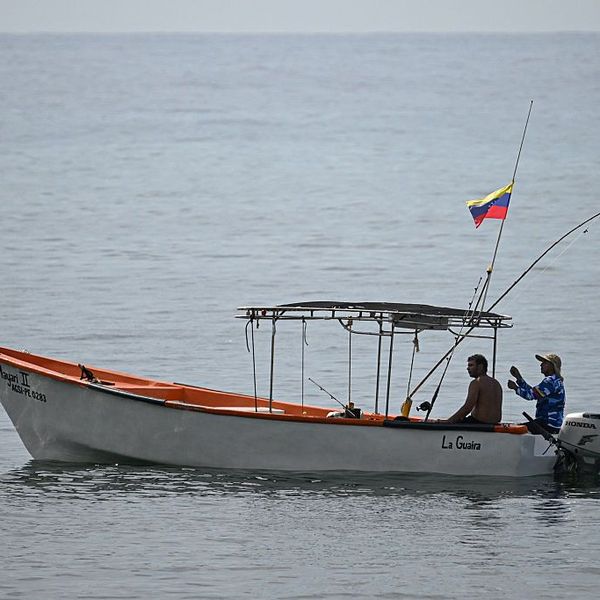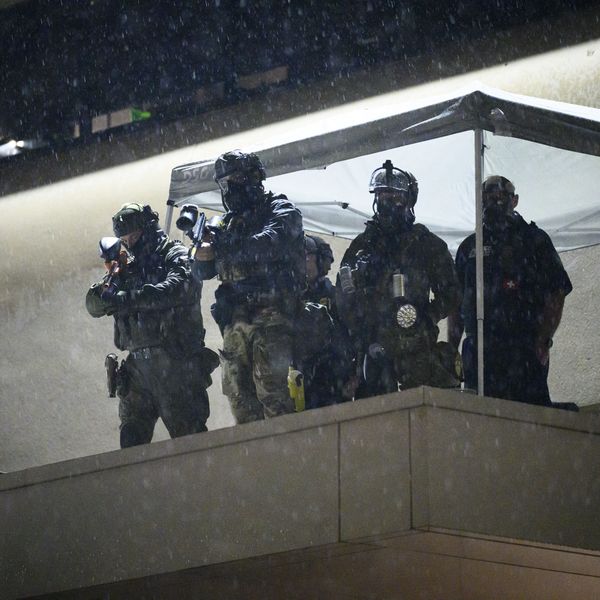UNITED NATIONS - After more than a year of contentious negotiations, diplomats from 109 countries meeting in Dublin agreed Wednesday on a treaty that would outlaw the use, production, transfer, and stockpiling of cluster munitions, which have killed and injured thousands of civilians over the last four decades.
There are 28 countries known to manufacture cluster munitions, and at least 14 have deployed them in conflicts. At least 76 countries have stockpiles of the weapon.
Six of the world's leading users and producers -- Russia, China, the United States, Israel, India and Pakistan -- did not attend the conference, and have said they would not sign any ban.
However, on Wednesday, in an unexpected reversal of its earlier position, Britain agreed to almost every provision in the treaty. "We have decided we will take all our types of cluster bombs out of service," British Prime Minister Gordon Brown said in London.
Human rights groups complained during the Dublin meeting that Washington had been pressuring its allies and lobbying hard behind the scenes to weaken any deal. U.S. officials have argued that a ban on clusters would prevent it from participating in humanitarian operations, because U.S. military ships carrying such munitions would be barred from the ports of countries that signed the treaty.
However, Human Rights Watch (HRW) notes that identical provisions in the treaty to ban landmines have had no such effect in the 11 years since it went into effect.
"In the end, the Americans had very little support in Dublin," said Steve Goose, arms director at HRW. "It's a big defeat for the Bush administration. This conference is going to produce a strong treaty banning cluster munitions, and there's nothing the White House can do to stop it."
Experts at HRW believe that the treaty will require the United States to remove its stockpiles of cluster munitions at several military bases around the world, a measure that Washington had strongly opposed.
According to the Cluster Munition Coalition (CMC), a global network of over 250 civil society organisations from 70 different countries, cluster bombs kill and injure civilians long after a conflict has ended. One-third of all recorded casualties are children.
The weapons are designed to break open in mid-air, releasing dozens or hundreds of explosive submunitions. Their widespread dispersal makes distinguishing between military personal targets and civilians virtually impossible. Because many of the submunitions fail to explode, large numbers remain on the ground, acting as de facto landmines up to a decade after their discharge.
The CMC says that cluster munitions caused more civilian causalities in Iraq in 2003 and Kosovo in 1999 than any other weapon system. Afghanistan, Laos, Lebanon and Vietnam have also lost thousands of civilians to cluster bombs.
"We think this [treaty] will make a huge difference to people around the world and it will save many lives and limbs," said Simon Conway, CMC co-chair. "We got a very strong treaty."
The treaty process officially began in February 2007 when nations met in Oslo, Norway to draft a legally binding instrument that would ban the use of cluster munitions that cause "unacceptable harm to civilians".
The final text will be formally approved on Friday, but it remains to be seen whether key countries will come on board.
At a May 21 briefing, Stephen Mull, acting assistant secretary for political-military affairs at the U.S. State Department, insisted that the international effort is ultimately flawed because the major producers and users of cluster munitions are not going to be participating in the process.
Mull insisted that U.S. military planners are determined that cluster munitions are necessary to protect U.S. interests, and these weapons are not "something that [they're] not going to unilaterally get rid of."
However, domestic pressure has led to an unofficial moratorium on cluster munitions transfers to other countries. Under the Foreign Operations Act of 2008, cluster munitions with less than a 99 percent reliability rate may not be exported from the United States. Since technology is not yet capable of creating a cluster bomb that has a 99 percent reliability rate, the U.S is not producing new cluster munitions and sales have reached a standstill.
Marc Garlasco, a senior military analyst for Human Rights Watch who closely followed the Dublin negotiations, is optimistic that these weapons eventually will be phased out.
"There are a number of reasons why the United States is not involved in the treaty right now. The first, clearly, is that the Bush administration is a non-internationalist institution -- they don't like to get involved in treaties," he told IPS.
"More importantly though, the United States has shown historically that they are very happy and willing to use cluster munitions," Garlasco said. "[But] if we can get [so many nations] on board to a very strong treaty, we will stigmatise the weapon to a point where it can never again be used."
(c) 2008 Inter Press Service

